Amity International School, Mohali
Learning environments play a pivotal role in a child’s life by creating a conducive character for overall growth and development. Spaces can create memories and enhance the learning experience greatly. The innovative approach to design for the Amity International School in Mohali, Punjab, attempts to go beyond the rigid morphology of educational spaces and planning. Drawing inferences from efficient models of tackling urban density, the complex seeks to embody a progressive spirit through an elevated level of spatial vibrancy by rethinking the design of conventional school complexes.
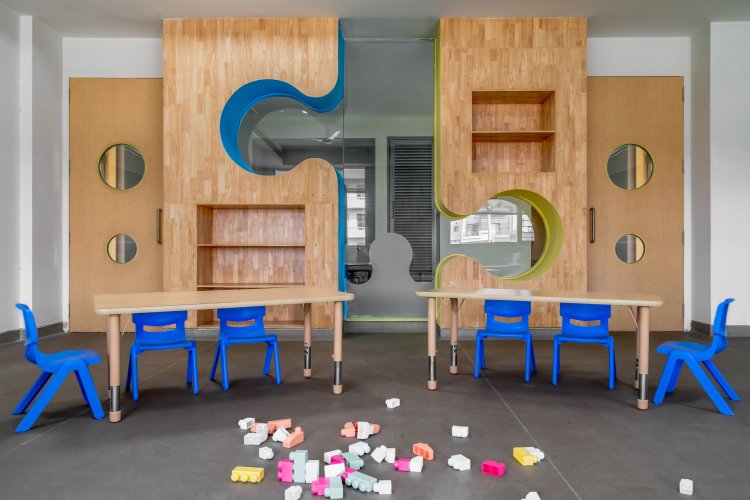
The site posed several challenges in terms of size, orientation and surroundings, which were ingeniously navigated, while developing a distinctive design scheme. To balance spatial requirements with site constraints, the building mass has been lifted to the podium level, spilling over into a large collonaded platform connecting the cafeteria and doubling up as a play area. Similarly, by providing activity areas at each level of the five-storey structure, the school complex enables spaces for engagement and exploration at several junctures.
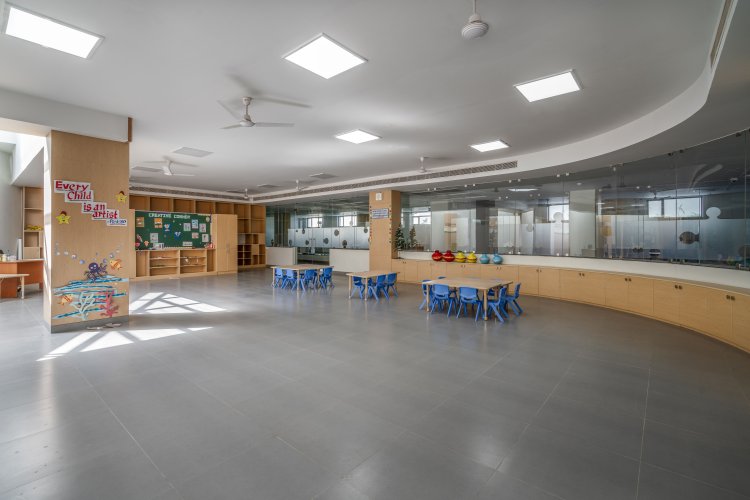
While formal environments can help focus better, informal areas are just as important and contribute significantly to the learning process. Based on this principle, the Amity International School encapsulates ample playgrounds, shaded walkways, play areas, and open and semi-open spaces across floors, forging engaging and exploratory spaces at several junctures.
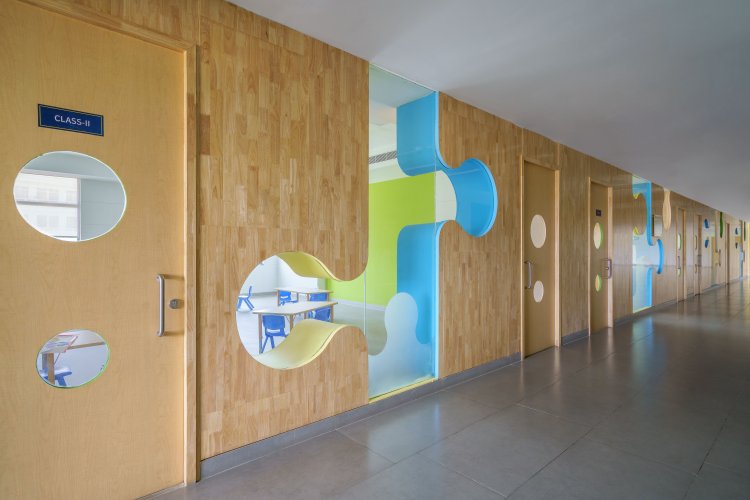
A playful mix of punctures and louvres lightens the visual load of the imposing five-storey structure. These façade elements are planned to allow natural light in all spaces throughout the campus. One of the most prominent details of the project is the exuberant curtain wall that wraps around the built form on the southern side. Made out of laser-cut aluminium panels and strategically placed to protect the building from the harsh southern sun, this fluid envelope of blue and yellow asserts a distinct visual identity to the complex. The building follows an organic form, achieved through well-crafted concrete details, with a bare ceiling, exposing the structural system, designed as an honest expression.
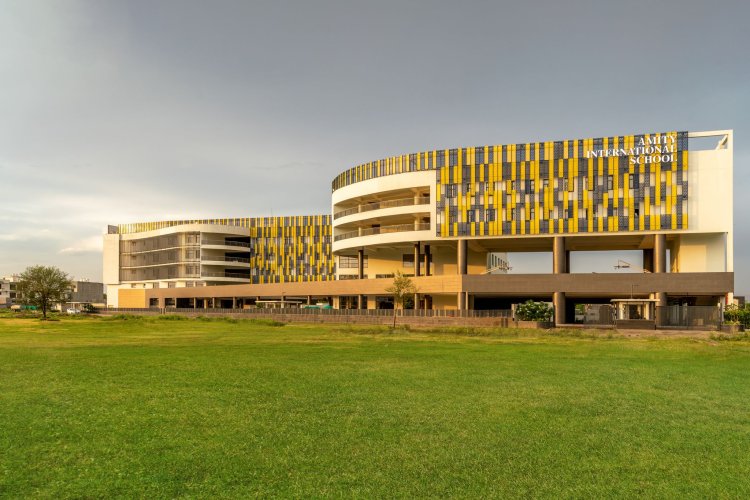
The interior spaces are shaped in a tactile language, with minimal but vibrant colours bringing in an elevated sense of dynamism, highlighting the innovative approach harbouring a conducive environment for learning. Wooden porous partitions, organically designed, enable visual connectivity within spaces at all times. The North and South facades are a perfect example of functionality and aesthetics, as they allow the building to be climate-responsive while establishing a distinct visual identity. Efficient planning through cross-domain learning was instrumental in developing a design scheme that is fit for holistic education.
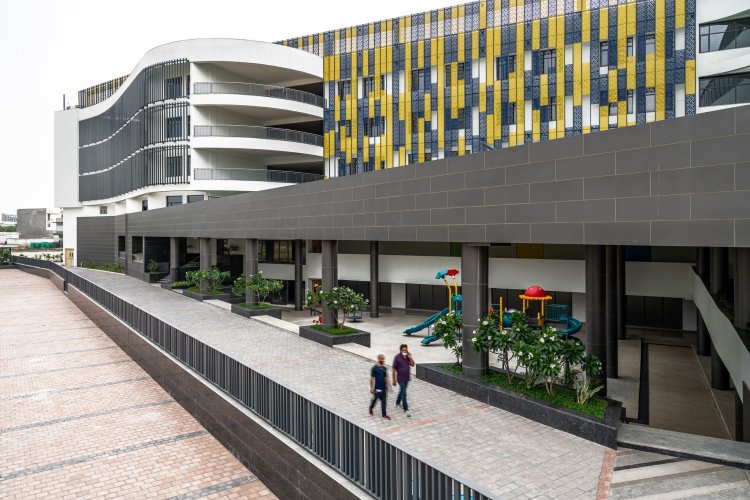
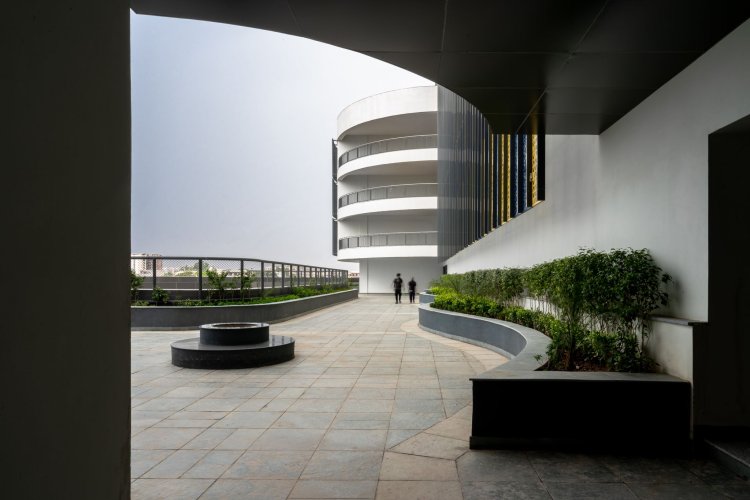
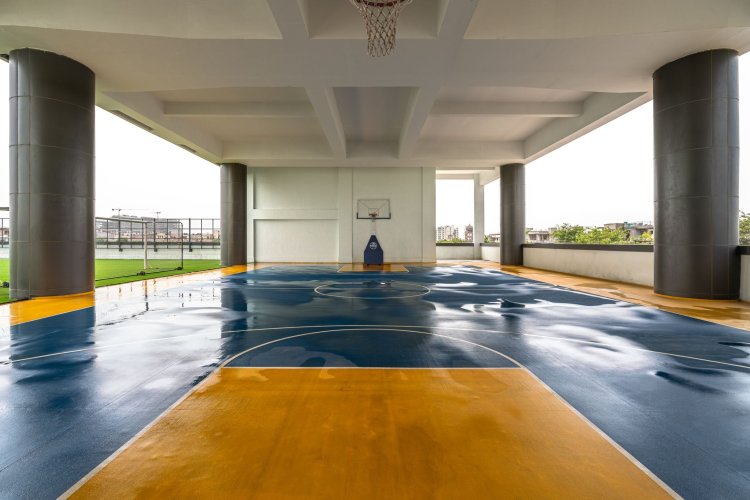
The comprehensive design scheme lays the blueprint for a holistic education – one where physical activity, social interaction, and creative exploration are just as crucial as curricular education.
